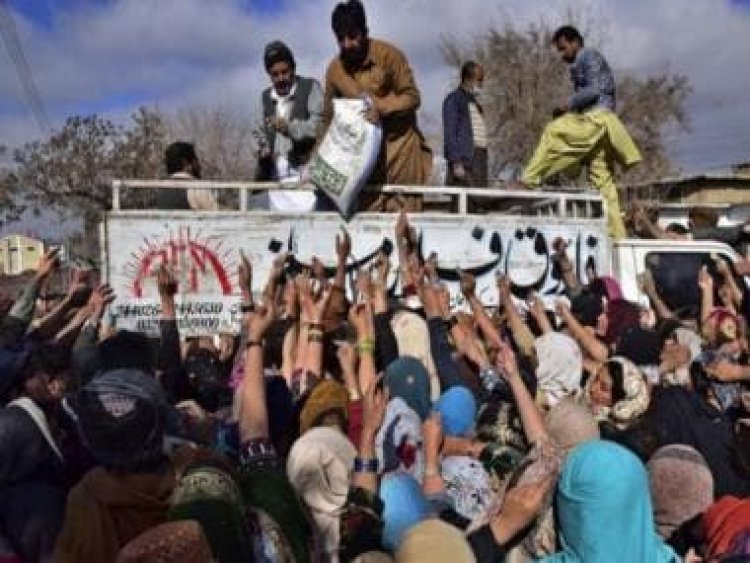Pakistan sinking under highest inflation in almost half century
Pakistan sinking under highest inflation in almost half century

Islamabad: Even as Pakistan sinks deeper into an ever-spiraling economic crisis, the country is experiencing its highest inflation rate in almost half a century.
According to data released by Pakistan’s statistics bureau on Wednesday, the inflation rate in the country has jumped to a 48-year high.
The development comes even as a delegation from the International Monetary Fund (IMF) is visiting Pakistan to review the economy and hold talks with Pakistani officials over a possible financial bailout.
The rate of year-on-year inflation in Pakistan was recorded at 27.55% last month. This was the highest rate of inflation experienced by the Pakistan economy since May 1975.
The Pakistan’s economy has been hit by a balance of payments crisis and a severe crunch in foreign exchange reserves as the government attempts to service high amounts of external debt.
The lack of foreign exchange reserves and high inflation rates has led to a severe shortage of essential items such as food and medicines. Thousands of containers of imported items including vegetables are rotting at Karachi port as the Pakistan government has no foreign exchange reserves to clear the required payments.
Pakistan has less than $3.7 billion left in its state bank, which is enough to cover just three weeks of imports. Around $3 billion of has been deposited by Saudi Arabia but is not meant to be used.
The Pakistan government led by PM Shehbaz Sharif has delayed implementing the strict conditions laid down by the IMF due to fears of a possible public backlash.
However, as an IMF delegation landed in Islamabad earlier this week to restart dialogue over a stalled bailout package, the Pakistan government, which is facing the prospect of national bankruptcy, started to implement some of the conditions proposed by the global financial body.
As part of this move, the Pakistan government scrapped subsidies, leading to yet another rise in petroleum and gas prices, which have risen to record levels.
The Pakistan government has loosened controls on the Pakistani rupee to rein in a rampant black market in US dollars, causing the currency to plunge to a record low.
The state bank of Pakistan is no longer issuing letters of credit, except for essential items such as food and medicines. This has led to a pile up of thousands of shipping containers at the Karachi port stuffed with stocks of items the Pakistan government can no longer afford.
Most industries in Pakistan have been severely affected by the imports block and the devaluation of the Pakistani rupee.
The textile industry, once the pride and joy of the Pakistan economy, is going through a severe downturn as textiles factories have partially shut down.
To add to the miseries affecting the Pakistan economy, public construction projects have halted while domestic investment has seen a drastic decrease.
According to a report by news agency AFP, former Pakistan Prime Minister Imran Khan, who was forced to step down last year following a no-confidence motion, had persuaded the IMF to come up with a multi-billion-dollar loan package in 2019.
However, under his watch, the Pakistan government backtracked on promises to reduce subsidies and market interventions, causing the IMF programme to stall.
Read all the Latest News, Trending News, Cricket News, Bollywood News,
India News and Entertainment News here. Follow us on Facebook, Twitter and Instagram.
What's Your Reaction?



























































